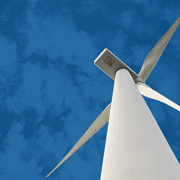Q-Cells SE, Solarworld AG and competing solar-energy companies face a dimmer outlook for investment and jobs as the German government considers cutting subsidized power prices.
Lower rates may reduce profit for panel makers and strip Germany of its title as the largest market for photovoltaic panels, said Karl Kuhlmann, chief executive officer of S.A.G. Solarstrom AG, a builder and operator of solar power plants.
Government officials debated rate reductions in meetings yesterday without making a final decision. Any reduction will have to be debated in parliament and may happen as early as April, lawmakers said.
At stake are about 10 billion euros ($14.1 billion) of investments in new factories and research through 2013 and an industry employing about 50,000 people, according to the Germany solar industry lobby group.
“The German panel producers will be hit hard,” Kuhlmann said. “The result of such a strong decline will lead extremely quickly to job losses in Germany.”
S.A.G. will likely reduce its investment this year in Germany when lower rates come into force and expand in other markets, the chief executive said. Banks will also demand that capital be invested in solar plants, slowing growth, and there will be a “massive” decline in ground-mounted systems compared with rooftop modules, Kuhlmann said.
Subsidized rates for solar power, paid by power consumers in Germany, are guaranteed for 20 years.
Price Guarantees
Lawmakers from Germany’s ruling coalition of the Christian Democratic Union, Christian Social Union and the Free Democrats are haggling over how much to lower the guaranteed prices for electricity generated using solar panels.
Rooftop systems already installed before the proposed cut will earn about 39 euro cents (55 cents U.S.) per kilowatt hour from local utilities. That compares with approximately 5 cents a kilowatt hour paid to generators using coal, natural gas or nuclear fuel for baseload electricity next year.
The proposals call for reductions that average 15 percent to 17 percent. Environment Minister Norbert Roettgen wants the price for electricity from solar plants installed on agricultural land to get a bigger reduction than rooftop systems
“Both the size and timing of the cuts suggested by Roettgen are unacceptable,” said Dieter Ammer, chief executive officer of Hamburg-based Conergy AG. “It took us 15 years to build up a solar industry here in Germany and this attractive industry is at risk.”
‘Insightful’ Cuts
The Ardour Solar Energy Index, a solar energy index whose members include Q-Cells, Conergy and Solarworld has fallen 13 percent this year.
“Each cut in the support must be done insightfully so as not to slow the competitiveness of this growing industry with conventional energy and allow enough room for further investment,” the BSW industry lobby group said on the planned reductions.
The lobby group says the guaranteed prices for electricity from solar panels will decline by almost one-fourth over a two- year period through 2011.
A reduction in the so-called feed-in tariffs could come as early as April. That means a “boom” in the first quarter as operators rush to lock in guaranteed prices before they fall, S.A.G.’s Kuhlmann said.























